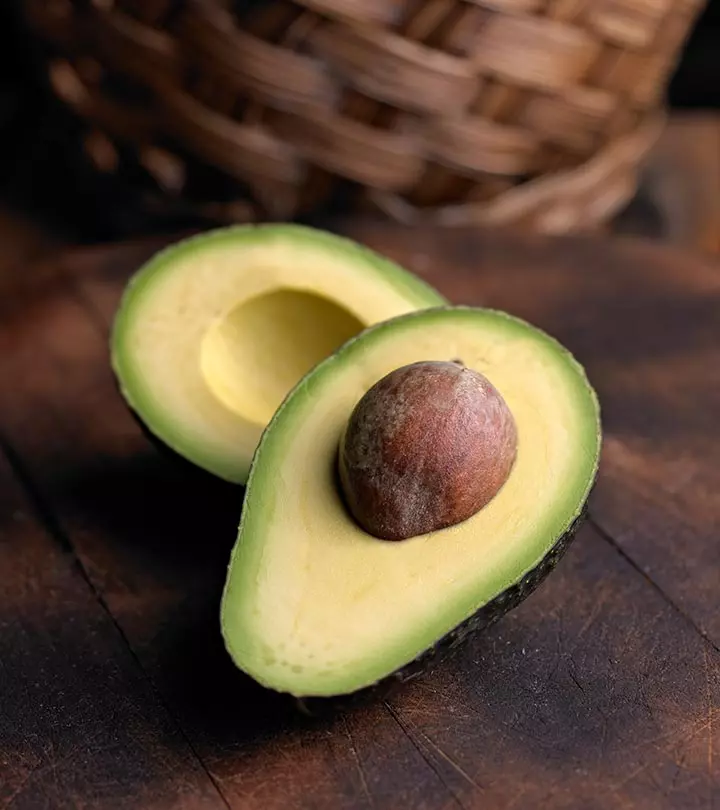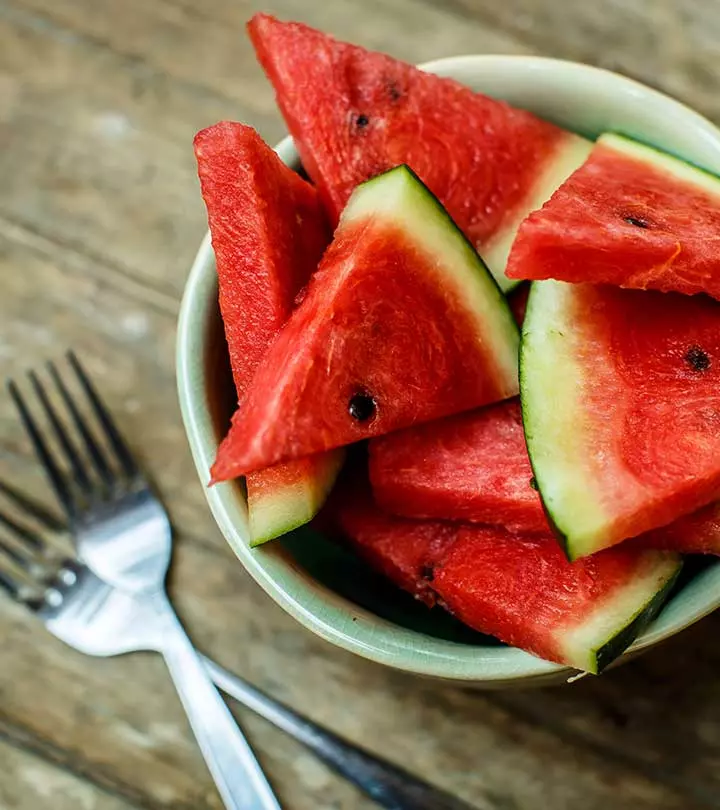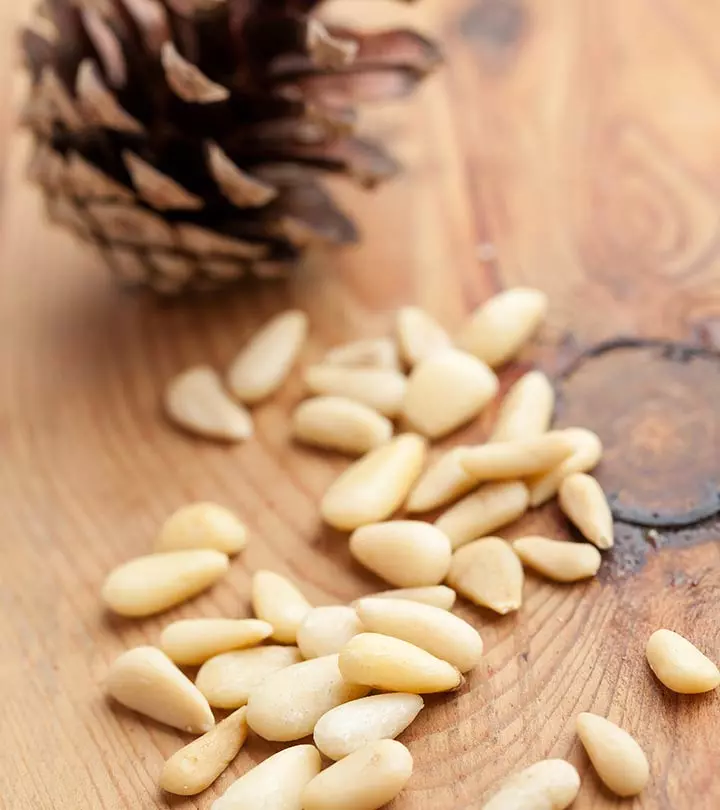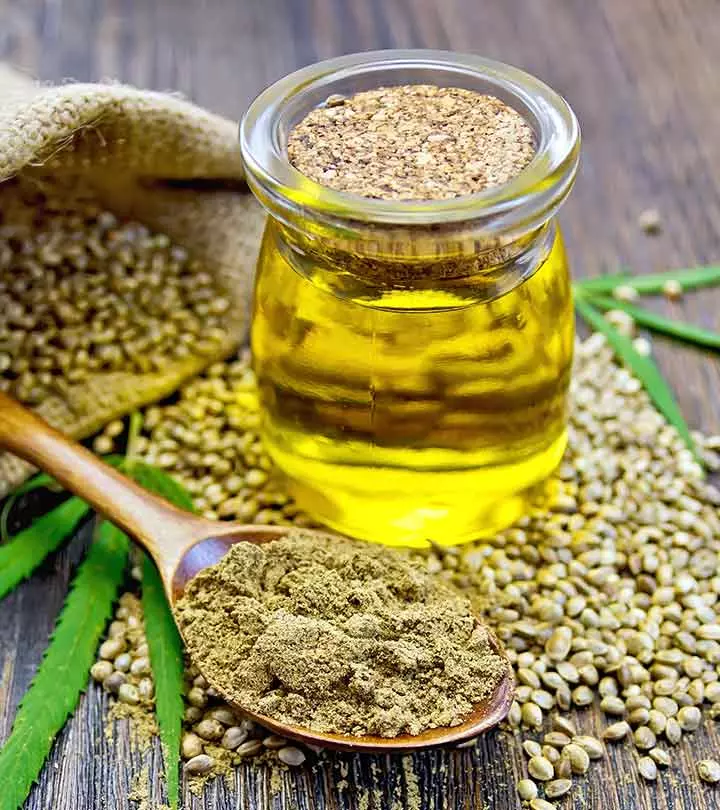10 Side Effects Of Avocados You Should Be Aware Of
We bet you never knew avocados could affect your health adversely in so many ways.

Image: Midjourney/ StyleCraze Design Team
If you are wondering about the side effects of avocado, we have got you covered! With avocado being touted as one of the healthiest fruits out there, this might come as a surprise to many people out there. However, it is important to be aware of the possible risks associated with avocado consumption rather than suffer the consequences later.
Avocado is enriched with not only essential nutrients that are beneficial for your skin and hair health but also with 25 vital vitamins and minerals (1). Not only that, it is also a rich source of dietary fiber, protein, and many important phytochemicalsi Substances present in plants that give their color, aroma, and flavor and reduce the risk of developing cardiovascular diseases. (2). Although they are a healthy food, avocados have some unintended consequences. When consuming them in large quantities it’s critical to be aware of these.
Avocado is more commonly known as alligator pear in Europe, butte fruit in India, and aguacate palta in Spanish. This amazingly beneficial fruit hails from Guam, Mexico, and other parts of Central America. However, many of its variants are now commonly found in Brazil, Colombia, West India, the Dominican Republic, and other parts of the world as well.
 Know The Flip Side: Avocado
Know The Flip Side: AvocadoShort-Term Effects
Itching and tingling sensation of lips, mouth, and throat, diarrhea and nausea.
Long-Term Effects
Weight gain, persistent digestive issues, potassium overload, context-dependent cholesterol build-up, and latex allergy-like reactions.
Drug Interactions
Negatively reacts with anticoagulants.
When To See A Doctor
If you experience difficulty breathing, watery eyes, severe rashes, or fainting.
Given its wide popularity and easy availability, it becomes all the more important to be aware of the side effects of avocado. To help you understand the possible risks better, we have summed them all up in this article for you. Scroll down and read on to know more!
Nutritional Information Of Avocados
A 100-gram serving of avocado has 160 calories, 14.7 grams of heart-healthy monounsaturated fats, and 6.7 grams of fiber (1). However, the fruit also contains antinutrients like tannins and oxalates. When consumed in large quantities, these may slow down the absorption of some nutrients and cause nutritional deficiencies (3).
Excess intake of avocados may also cause other adverse effects. We have discussed them in the next section.
Key Takeaways
- Women who are expecting or breastfeeding should avoid avocados.
- People following a diet should consume avocados moderately as it is a high-calorie food.
- Overeating may lead to gastric and intestinal issues as well as liver damage.
- People with hypersensitivity may feel nauseous or get skin reactions after consuming avocados.
Side Effects Of Avocados
Given below are the top avocado side effects here:

1. Avoid During Pregnancy And Breastfeeding
It is not advisable to eat avocado during pregnancy and breastfeeding. It may reduce milk production. It can also cause damage to the mammary gland. If the breastfeeding mother consumes avocado in large amount, the baby will have an upset stomach.
However, there is not enough research to support this claim. Therefore, expectant and breastfeeding mothers should consume avocados in moderation and consult their healthcare provider to assess individual tolerance.
 Fun Fact
Fun Fact2. Avocado Hypersensitivity

People suffering from hypersensitivity should avoid eating avocados. It may cause skin reactions, such as a skin rash or vomiting. A study, published in the journal “Allergy” in July 1994, examined avocado hypersensitivity in 17 patients. Researchers found that consuming avocado triggered severe allergic reactions, including systemic anaphylaxis, urticaria (hives), vomiting, asthma, and rhinoconjunctivitis. Skin tests confirmed allergies to two avocado varieties—Strong and Hass—with Strong avocado showing higher allergenicity. Interestingly, many patients were also allergic to latex, chestnut, banana, kiwi, and walnut, suggesting shared allergens among these. The findings highlighted a strong link between latex allergy and avocado sensitivity, especially in middle-aged women exposed to latex (4). Therefore, individuals with known latex allergies should be cautious with avocados.
3. Avocado Causes Allergy

Avocado can have adverse effects, terrible skin issues with allergies being the major effect. Symptoms of an allergic reaction are hives, itching, skin redness, and eczemai A chronic inflammatory skin condition that causes dry and cracked skin, itching, redness, and rashes. (5).
Tricia, a blogger, experienced gastrointestinal distress after consuming guacamole. She realized she was allergic to avocado after having the fruit in her meals. She said, “The itchy throat should have been my first clue – the gastrointestinal symptoms followed about an hour later (similar to what I experience with shrimp, but not as intense) (i).”
Differentiating Between Allergies And Sensitivities
Avocado allergies are immune system responses that cause symptoms such as:
- Hives
- Itching
- Swelling of the lips, mouth, or tongue
- Anaphylaxis (in severe cases)
In contrast, sensitivities to avocados may lead to milder, non-immune reactions, such as gastrointestinal discomfort (e.g., bloating, nausea, or diarrhea).
If you suspect an allergy or sensitivity to avocados, consult an allergist for appropriate testing and diagnosis.
Staci Gulbin, RD, says, “If you’re allergic to avocado, but would still like to reap its vast nutritional benefits and delicious, creamy texture, try hummus made wth olive oil or nut butters for a good source of fiber and healthy fats.”gy or sensitivity to avocados, consult an allergist for appropriate testing and diagnosis.
4. Adverse Effects Of Avocado

Many people who consume avocado suffer from adverse effects, such as flu, paralysis, nausea, gastrointestinal disorder, vomiting, migraine, headache, fever, drowsiness, dizziness, and asthma. These side effects are often dose-dependent and more likely to occur in individuals with pre-existing conditions or sensitivities.
5. Sensitivity To Latex
People who are sensitive to latex should avoid taking avocado as it increases the level of serum IgE antibodies in the body which may cause allergic reaction (6).
6. Reduce Cholesterol
You may be happy reading that avocado reduces cholesterol level. Yes, that’s true, but if you consume it in large amount, it will harm your body as it is rich in beta – sitosterol that absorbs necessary cholesterol from the body (7). Moderation is key to reaping avocados’ cholesterol-lowering benefits without risking any negative effects.
7. Restrict Its Consumption If You Are On Diet
Avocado is a high-calorie food, and it will increase your weight. So avoid eating them daily if you are on a diet. The high calorie content of avocado can be attributed to its healthy fats. That said, it does not elevate sugar levels as it contains very few carbs. That’s why it’s important to stick to a well-planned avocado diet for weight loss and consult a dietitian before starting it.
 Did You Know?
Did You Know?8. Cause Mouth Allergy

If avocado is consumed in adequate amounts then it may cause mouth allergy like itching sensation in the mouth and swelling tongue. This reaction typically occurs shortly after consuming avocado and is more common in individuals allergic to birch pollen.
9. Drugs
Avocado in large amounts may decrease the effect of anti inflammatory medication. Hence, its excess consumption leads to blood thinning. Speak to your healthcare provider if you are on medications and wish to include avocados in your diet.
10. Gastrointestinal Irritation

If you consume avocado in large amounts, then you may experience stomach discomfort. It sometimes also causes gastrointestinal irritation (8). Excess intake of avocados may also cause constipation due to its high fiber content. On the other hand, the fruit is high in water too. Consuming the fruit in excess may make it difficult for your body to absorb all the water properly, potentially leading to diarrhea. To prevent digestive issues, consume avocados in moderation and observe your body’s response.
While you learned the general side effects of avocados till now, we next discuss the potential risks associated with this fruit in babies.
Side Effects Of Avocados For Babies
While eating avocados in moderation is generally healthy for babies, they also may cause some potential side effects. These may include the following:
- Allergic Reactions
Avoid giving avocados to infants or children if they have latex sensitivity (6). Some may experience allergic responses such as itching, sneezing, facial swelling, or rashes. In severe cases, breathing difficulties may also occur. Immediate medical attention is advised if any of these symptoms manifest.
- Stomach Irritation
When you give your baby new and healthy foods such as avocados, it’s a good idea to keep a close watch on them for roughly 24 hours. Even though avocados are nutritious and delicious, some may develop allergies to specific foods. Excess consumption may also lead to stomach discomfort in some cases.
Tip: Always introduce new foods, like avocados, gradually and monitor for any adverse reactions over 24 hours.
Practical Advice To Follow
- Opt for safer alternatives like bananas or sweet potatoes during pregnancy and breastfeeding. However, always consult a healthcare provider before changing or diet or introducing a new food to it.
- Choose fruits like mangoes, pears, or apples if you are allergic to avocados. Take antihistamines for mild reactions and seek medical help for severe symptoms.
- Avoid Mexican avocados and avocado oil if you have liver issues; try liver-friendly foods like beets, carrots, or leafy greens.
- Avoid fruits like bananas, kiwis, and chestnuts if you are sensitive to latex; opt for grapes or berries instead.
- Limit avocado intake to maintain cholesterol levels and include foods like oats, flaxseeds, and legumes.
- Eat avocados in moderation (half per serving) if managing weight; replace with low-calorie options like cucumbers or berries.
- Rinse your mouth with cool water if you experience itching or swelling; try alternatives like peaches, plums, or nectarines.
- Reduce portion sizes if avocados cause stomach issues; pair them with foods like rice, boiled potatoes, or plain yogurt.
- For babies, introduce gentler foods like applesauce, mashed bananas, or carrot puree; consult a pediatrician for guidance.
Infographic: How To Deal With Avocado Side Effects
Avocado is one of the healthiest foods and is loaded with many beneficial nutrients. Many consume it as a part of their regular diet. However, there are a few side effects associated with avocado consumption. Hence, following a few tips can help minimize these effects. The following infographic provides information about these tips. Check it out.
Some thing wrong with infographic shortcode. please verify shortcode syntax
Avocados are highly nutritious, delicious fruits with rich antioxidant compounds. The phytochemicals, dietary fiber, and vital vitamins and minerals in them offer several health benefits. However, there are some side effects of avocados one must be aware of. Excess intake of avocados may cause hypersensitivity, allergy, liver damage, nausea, vomiting, asthma, and interaction with blood-thinning medications. In addition, if you are on a diet or are a pregnant or lactating mother, avoid consuming avocados.
Frequently Asked Questions
Is it OK to eat avocado every day?
Yes, avocado can be consumed every day in a limited quantity (50 grams a day), as consuming it in excess may trigger adverse effects like bloating, gas, and upset stomach.
Do avocados clog your arteries?
No. Avocados do not clog the arteries. They are loaded with healthy fats that benefit your heart.
Is avocado cold or hot for the body?
Avocado is cold for the body. It is a superfood that may help you cool down.
Is avocado good for the kidneys?
Avocado has high potassium content, which may not be good for people with kidney issues. Therefore, it is best to avoid avocados if you have renal disease or other underlying conditions or medications (9).
How long does it take to digest an avocado?
Since avocados have high-fat content, they may take more time to be digested. Though the exact time is unknown, it may take two to four hours.
Can I mix avocado and milk?
Yes, avocado with milk is a good combination. You can blend them and drink the mixture to cool down the body.
Does avocado increase acidity?
There is no scientific evidence to prove that avocados increase acidity. However, there is a chance of getting acid reflux issues if you consume more avocados as they contain high fat.
Do you consume avocados frequently? Overindulgence may lead to a few health concerns. Watch the following video to learn more about any potential side effects of avocados.
Personal Experience: Source
StyleCraze's articles are interwoven with authentic personal narratives that provide depth and resonance to our content. Below are the sources of the personal accounts referenced in this article.
i. Avocado Allergyhttps://jonskifarms.wordpress.com/2006/04/08/avocado-allergy/
References
Articles on StyleCraze are backed by verified information from peer-reviewed and academic research papers, reputed organizations, research institutions, and medical associations to ensure accuracy and relevance. Read our editorial policy to learn more.
- Avocados raw all commercial varieties
https://fdc.nal.usda.gov/fdc-app.html#/food-details/171705/nutrients - Hass avocado composition and potential health effects
https://pubmed.ncbi.nlm.nih.gov/23638933/ - Physicochemical Properties of Avocado Seed Extract Model Beverages and Baked Products Incorporated with Avocado Seed Powder
https://www.ncbi.nlm.nih.gov/pmc/articles/PMC10247324/ - Avocado hypersensitivity
https://pubmed.ncbi.nlm.nih.gov/8074265/ - Prevalence of avocado allergy among atopic patients
https://pubmed.ncbi.nlm.nih.gov/8566736/ - The latex-fruit syndrome
https://pubmed.ncbi.nlm.nih.gov/12440950/ - Lowering of Serum Cholesterol by the Administration of a Plant Sterol
https://www.ahajournals.org/doi/pdf/10.1161/01.CIR.10.2.201 - Avocado Consumption Alters Gastrointestinal Bacteria Abundance and Microbial Metabolite Concentrations among Adults with Overweight or Obesity: A Randomized Controlled Trial
https://pubmed.ncbi.nlm.nih.gov/32805028/ - Hyperkalemia
https://www.ncbi.nlm.nih.gov/books/NBK470284/
Read full bio of Reda Elmardi
- As a registered dietitian since 2010 and a freelance health writer since 2011, Staci has treated hundreds of patients for nutrition-related issues. She also has written for popular sites like Shape, Health, and GoodRx, and has also worked as a Featured Nutrition Expert for OprahMag, StyleCraze, and EatThisNotThat. You can keep up with her latest articles and featured publications on her blog – www.lighttracknutrition.com.Staci has graduated from Columbia University. She also authored a self-help eBook How to Reset Your Health and two cookbooks titled The High Protein Bariatric Cookbook and The Healthy Bariatric Smoothies Recipe Book. She hopes to use her writing to help others become their healthiest self.Staci, at the moment, is shopping for an agent for her latest book project focused on revolutionizing the way we talk about food.
 As a registered dietitian since 2010 and a freelance health writer since 2011, Staci has treated hundreds of patients for nutrition-related issues. She also has written for popular sites like Shape, Health, and GoodRx, and has also worked as a Featured Nutrition Expert for OprahMag, StyleCraze, and EatThisNotThat. You can keep up with her latest articles and featured publications on her blog – www.lighttracknutrition.com.Staci has graduated from Columbia University. She also authored a self-help eBook How to Reset Your Health and two cookbooks titled The High Protein Bariatric Cookbook and The Healthy Bariatric Smoothies Recipe Book. She hopes to use her writing to help others become their healthiest self.Staci, at the moment, is shopping for an agent for her latest book project focused on revolutionizing the way we talk about food.
As a registered dietitian since 2010 and a freelance health writer since 2011, Staci has treated hundreds of patients for nutrition-related issues. She also has written for popular sites like Shape, Health, and GoodRx, and has also worked as a Featured Nutrition Expert for OprahMag, StyleCraze, and EatThisNotThat. You can keep up with her latest articles and featured publications on her blog – www.lighttracknutrition.com.Staci has graduated from Columbia University. She also authored a self-help eBook How to Reset Your Health and two cookbooks titled The High Protein Bariatric Cookbook and The Healthy Bariatric Smoothies Recipe Book. She hopes to use her writing to help others become their healthiest self.Staci, at the moment, is shopping for an agent for her latest book project focused on revolutionizing the way we talk about food.
Read full bio of Tanya Choudhary
Read full bio of Ravi Teja Tadimalla
Read full bio of Moksha Gandhi


























Community Experiences
Join the conversation and become a part of our empowering community! Share your stories, experiences, and insights to connect with other beauty, lifestyle, and health enthusiasts.